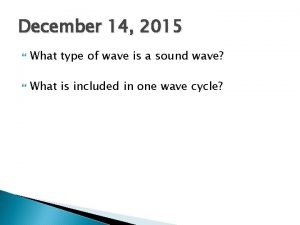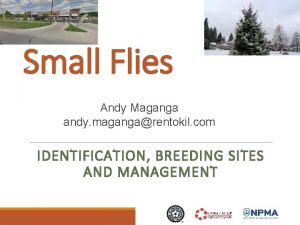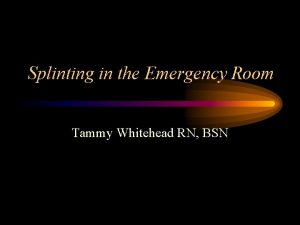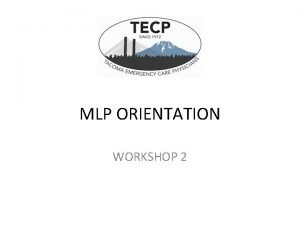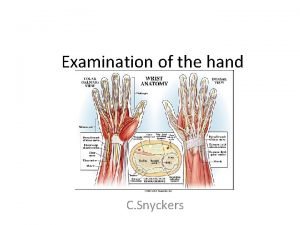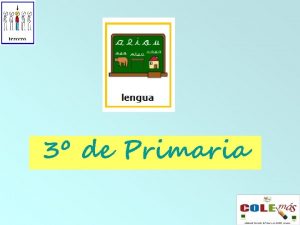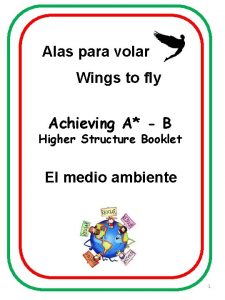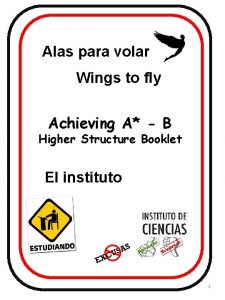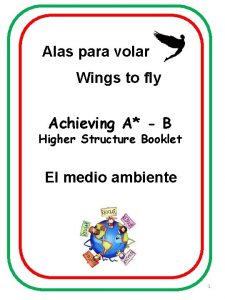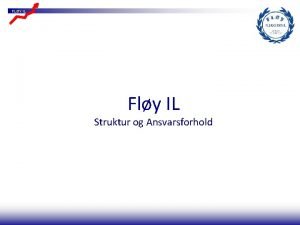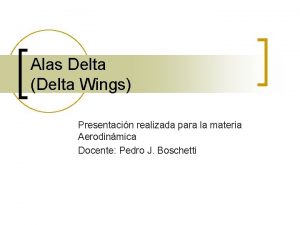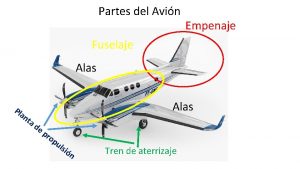Alas para volar Wings to fly Achieving A















- Slides: 15

Alas para volar Wings to fly Achieving A* - B Higher Structure Booklet El instituto 1

Higher Tier Language Structures – El instituto y planes futuros 1. OPINIONS 1. Creo que. . . 2. Pienso que. . . 3. En mi opinión. . . 4. Para mí. . . 5. A mi parecer. . . 6. Diría que. . . 7. Desde mi punto de vista. . 1. Opinions 1. I believe that. . . 2. I think that. . . 3. In my opinión. . . 4. For me. . . 5. It seems to me 6. I would say that. . . 7. From my point of view. . 2

Extended sentences LIKES + REASON Write EVEN longer sentences using porque and pero in the same sentence. 2. LIKES 1. Me gusta 2. Me importa 3. Me encanta 4. Me chifla 5. Me mola 6. Me fascina 7. Prefiero 8. No me importa 9. No me gusta 2. LIKES 1. I like 2. I care for 3. I love 4. I love 5. I think it´s cool 6. It fascinates me 7. I prefer 8. I don´t mind 9. I don´t like 10. I can´t stand 11. It bothers me 12. It irritates me 13. I hate 10. No soporto 11. Me molesta 12. Me irrita 13. Odio 3

3. REASONS 1. Porque 2. Por esta razón 3. Puesto que 4. Ya que 5. Por eso 6. A causa de que 7. Debido al hecho de que 8. Esto indica que 1. 2. 3. 4. 5. 6. 7. 8. because for this reason because That´s why Due to the fact This indicates Examples Me gusta……………. porque* es……………. pero*……………. I like…………. because it is…………………. . but………………… Me chiflan………………porque* son………………pero* I love (plural)……because they are………but 4

4. Lo + adjective…. When you want to say “The good thing is that…. ” “The bad thing is……. ” “The best thing is…. . ” use lo + adjective Examples Lo malo* es que mi instituto no está en un barrio muy bueno. The bad thing is (that) my school is not in a very good neighbourhood. Lo bueno* de mi insti es……la escasez de deberes The good thing about my school is……the lack of homework Lo mejor* de mi instituto es …que es tal y cómo yo siempre he soñado. The best thing about my school is that is just how I´ve always dreamt. Lo peor* del instituto es. . que no lo cuidamos The worst thing about the school is……we don´t look after it Lo más negativo* de mi instituto es la falta de zonas verdes donde jugar. The most negative thing about the lack of green areas where to play 5

5. Impersonal Verbs Hay que se puede + full verb se debe + full verb se necesita + full verb se require + full verb Examples Hay que estar en silencio Se puede* hacer casi cualquier proyecto No se debe* tirar basura en el suelo You have to You can You should/must/ought to You need to It requires You have to be quiet You can do almost any project You shouldn´t throw litter on the floor 6. It´s +Adjective+ TO Infinitive Es Es Es difícil + fácil + necesario+ esencial+ útil+ importante fundamental prioritario primordial It´s difficult It´s easy It´s necessary It´s essential It´s useful It´s important It´s fundamental It´s a priority It´s essential Examples Es difícil entend. ER matemáticas It´s difficult to understand Maths 6

7. Correlations No sólo. . . . sino también. (Not only. . but also). Examples Me gusta no solo los parques sino también los bosques I not only like parks but also forests 8. Negatives no…. nunca jamás no…. nadie no …. ni…. . ni don´t (not) never anybody / nobody neither……nor………. Examples No* me gusta el campo porque tengo alergia I don´t like the fields (The countryside) because I´ve got hayfever Nunca* paso tiempo en el parque I never spend time in the park Jamás* reciclo I never recycle Mis amigos no reciclan ni el papel ni el vidrio We don´t recycle either paper or glass. 7

9. Expressions with tener Tener means to have but when linked with an adjective (describing word) its meaning changes from “to have” to “to be” Examples Tener éxito* to be successful Tener miedo* to be afraid Tener hambre* to be hungry Tener suerte* to be lucky Quiero tener éxito* en la vida I want to be successful in life Tendré suerte* si…. . I will be lucky if…… Tener conciencia ciudadana to be a good citizen Tener el mono to have the cold turkey Tener el pavo to be a teenager Examples Tendrémos suerte si aprobamos We will be lucky if we pass 8

10. “If” sentences When you start sentences with “if” or “si” in Spanish, combinations of tenses are used. The combinations are as follows Si* + present + future Si* + imperfect + conditional Si* + pluperfect + conditional perfect Examples Si* estudiamos, aprobaremos todos los exámenes If we study, we will pass all the exams Si* mi amiga estudiara más, tendría mejores notas If my friend studied, she would have better grades Si* hubiese asistido a clase, habría entendido el tema. If had attended to the lessons, I would have understood the topic. 11. Object Pronouns When you want to avoid repeating the thing you are talking about in a sentence, use an object pronoun. They are normally found in front of a verb. The most commonly used are: it them me Masculine lo los me Examples Lo* estudio Me* ayudará Nos* beneficiará Limpialo Feminine la las me I´m studying it it will help me it will benefit us clean it up Don´t get confused with THE (article) EL, LA, LOS, LAS!!!!!! 9

12. Comparatives When you want to compare two things use the following comparisons Más……… que more…. than Menos ………. . que less…. than Tan………como as…………as Examples Mi instituto es más limpio que* el de mi amiga My school is less expensive than my friend´s one Los colegios ingleses son tan estrictos como* los españoles English schools are as strict as Spanish ones. 13. Superlatives When you want to say “the most………… ” or “the least……” use a superlative in Spanish el la más menos the most (m) the most (f) the least (m) the least (f) Examples Este instituto es el más* novedoso This school is the most innovative. 14. Tengo la intención de + Infinitive I tend to + infinitive Examples Tengo la intención de estudiarar lo más que pueda I intend to study as much as possible 10

15. Adverbs Adjectives which describe verbs are called adverbs. In English they usually end in “ly”. In Spanish normally they end in “mente” Example probablamente probably afortunádamente fortunately definitívamente definitely constántemente constantly periódicamente periodically consecuentemente consequently However, not all adverbs end in “mente” Examples a menudo algunas veces ahora casi often sometimes now almost 16. Linking ideas with starters such as ……. a) b) c) Al llegar + full verb Después de + full verb Antes de + full verb before On arriving…. After………. . Before…… Example Al* llegar a mi instituto se encuentra la recepción On arriving to my school you find the reception Después de* hacer practicas en el laboratorio, entiendo mejor el tema After working on the labs I understand the topic better 11

17. Conjunctives ( Conectores) Start sentences with good linkage to gain valuable content marks También Además Y Pero Porque Ya que Por ejemplo also Furthermore and but because for example Sin embargo Aunque Para empezar Para concluir Por un lado. . por otro lado En primer lugar Al fin y al cabo A pesar de todo Por lo tanto Por lo que Afortunadamente Por desgracia Después Entonces Luego Por eso Así que Ya que Aparte de However Although To start / begin with To sum up / conclude On the one hand. . . on the other hand In the first instance / place When all is said and done Despite everything Therefore Fortunately Unfortunately after / afterwards then / so then / next so / for this reason so since, considering that apart from 12

18. Using the gerund When you want to use “ing” in Spanish add “iendo” to er or ir verbs or “ando” to ar verbs. Example Viviendo* en el centro, ahorraré en transporte. Living in the city centre, I will save in transport. Respetando* a mis compañeros, el instituto será mejor Respecting my classmates, my school will be better. 19. TENSES 1. Present ESTUDIO 2. Preterite ESTUDIÉ 3. Perfect HE ESTUDIADO 4. Imperfect ESTUDIABA 5. Conditional ESTUDIARÍA 6. Pluperfect HABIA ESTUDIADO 7. Subjunctive ESTUDIE 8. Future ESTUDIARÉ or VOY A ESTUDIAR 20. Después de haber + past participle When you want to say after having done something, you use después de haber + past participle Examples Después de haber modernizado* los autobuses………. After having modernised the buses…………… Después de haber ESTUDIADO*…… After having studied…………… Después de haber defendido* a mis profesores…… After having defended my teachers…………… 13

21. Subjunctive phrases Quisiera Ojalá fuera Ojalá tuviera Ojalá pudiera Ojalá hubiera Cuando sea mayor Cuando (to indicate future) I would like If only I or He/She/It were If only I or He/She/It had If only I or He/She. . could If only there were When I’m older When. . . Si tuviera más tiempo/dinero If only I had more time/money Cuando sea mayor. . . When I´m older Cuando viva solo. . . When I live by myself Cuando el mundo cambie su mentalidad. . . When the world changes its way of thinking 22. Usually OR Used to = Soler Suelo – I usually Suele- He/she usually Solemos – we usually Suelen- they usually Solía – I used to Solíamos- We used to Solían- They used to Followed by an INFINITIVE (AR, ER, IR) Examples Suelo pas. AR mucho tiempo estudiando para mis exámenes I usually spend lots of time studying for my exams. Cuando era pequeño, solíamos s. ER parte del consejo escolar. When I was younger, we used to BE part of the Governors Council. 14

23. Using “ísimo” (veeeeeery) When you want to emphasise an adjective add “ísimo” to it ísimo (m) ísima (f) ísimos (mpl) ísimas (fpl) Example El cine es grandísimo* The cinema is veeeery big El transporte público es carísimo* Public transport are veeery expensive Mi instituto es modernísimo*. My school is veeeeery modern. 24. Tanto/a/s…. como As many as En mi instituto no hay tantos alumnos como en el anterior. In my school there is not as students as in the previous one. 25. RELATIVE CLAUSES WHO (quien) , WHICH (que), WHERE(donde), WHOSE (cuyo) En el instituto donde estudio… In the school where I study. . . 26. Desde hace……(Since…ago/ for) When you want to say how long you have been doing something you use desde hace + present tense Examples Estudio español desde * hace cinco años I have been studying Spanish for 5 years Me gusta la geografía desde * hace tres años I have liked Geography for 3 years 15
 Frieda the fly flaps its wings
Frieda the fly flaps its wings Drain flies
Drain flies Fly eagle fly characterisation
Fly eagle fly characterisation Palmar vs volar
Palmar vs volar Volar tan alto
Volar tan alto Panjang ulna adalah
Panjang ulna adalah Volar splint ortho glass
Volar splint ortho glass Ulnar gutter splint
Ulnar gutter splint Claw hand deformity
Claw hand deformity Raíz o lexema de volar
Raíz o lexema de volar Volar es aguda grave o esdrújula
Volar es aguda grave o esdrújula Fascial space
Fascial space Closed reduction casting
Closed reduction casting Por como empieza y volar sabe
Por como empieza y volar sabe Avulsiofragmentti
Avulsiofragmentti Hemos aprendido a volar
Hemos aprendido a volar
